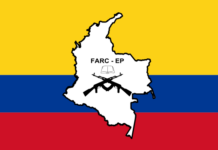
Campaign groups initiate proceedings that could push Bogotá’s mayor Enrique Peñalosa out of office, though it’s a long shot.
On January 2 citizen groups filed a petition at the Registraduría Distrital to remove Bogotá mayor Enrique Peñalosa from office, beginning a lengthy procedure that may eventually lead to a public vote on whether he should stay.
The four committees cited public dissatisfaction with the work of the Peñalosa administration, including the privatisation of the Empresa de Teléfonos de Bogotá (ETB), revised proposals for public transport that scrap the planned subterranean system in favour of an above-ground metro and health sector reforms. The granting of permission to allow construction on the Van Der Hammen Reserve has also sparked concern from environmental groups.
Leonardo Puentes, the leader of ‘Revoquemos a Peñalosa,’ the most visible committee behind the petition that formed in 2015, before the mayor had even taken office, suggests that he wants to build a citizen movement rather than a partisan one. Puentes defended previous mayor Gustavo Petro against a similar petition in 2013.
Another vocal group, ‘Unidos Revoquemos a Peñalosa,’ is composed of two ETB unions and La Asociación Distrital de Educadores (ADE), a university professors’ association. Román Vega, the leader of the committee, explains his group’s opposition to Peñalosa: “Our effort to achieve a recall has the common good of the city at heart, as well as the interests of present and future generations of bogotanos.”
The Registraduría Distrital will have 15 days from January 2, when the petition was filed, to provide forms to the committees, which in turn will have six months to collect signatures. The Procuraduría will monitor the petition process and the groups must collect a total of 271,818 signatures, equivalent to 30% of votes cast for Peñalosa when he was elected in October of 2015.
If they succeed, a recall election will be held and the public will be able to vote ‘Yes’ or ‘No’ for the mayor’s removal. Here, 40% of the total votes cast in the original election – 1,092,229 – must be recorded. The mayor will lose his position if more than half of these voters elect to remove him from office.
If the petition succeeds, it would be the first to do so out of more than 160 similar attempts to recall mayors and governors in the last two decades. However, in 2015 the legislation was changed to lower the minimum percentages required, making the process slightly easier than in previous undertakings.
For his part, Mayor Peñalosa blames his waning popularity on unreasonably high expectations and the Left’s shock at losing power after 12 years. As of last August, his disapproval rating was as high as 69%. “We’ve made an extraordinary effort,” he told El Tiempo. “I’m completely at peace with that.”
By Madeline Walsh













